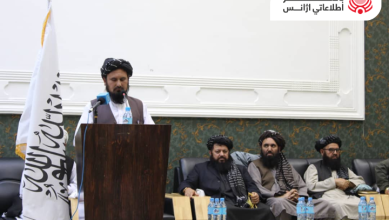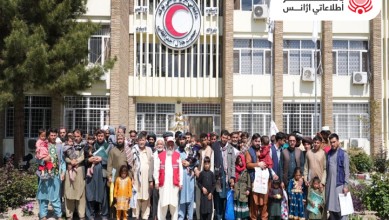
Tuesday June 28, 2016
Kabul (BNA) The ubiquitous “randoseru” backpacks carried by elementary school pupils in Japan have become a symbol of hope and peace in a faraway country where most of the children have only known war. So far, more than 160,000 used randoseru have been shipped from Japan to Afghanistan under a project spearheaded by a Japanese man who was appalled by the illiteracy created under the brutal regime of the Taliban and was determined to take measures that could save future generations. Hideyuki Takahashi from Japanese Organization for International Cooperation in Family Planning (JOICFP) overcame difficulties and pessimism to send the durable retired school backpacks to help teach parents in Afghanistan that education is important for all age groups, even adults. But he also learned that in the strife-torn country in central Asia, the sturdy backpacks from Japan have taken on a wider meaning. In 2002, as the Taliban regime had been ousted year before, Takahashi and JOICFP, which has been working to support families in Asia and Africa, entered Afghanistan to see if there was anything they could do to help.
Under Taliban rule, girls were denied education, and Afghanistan’s literacy rate among women fell to among the lowest in the world. Takahashi saw how Afghan women who could not read were unable to gain accurate information about health and hygiene. That led to high death rates among mothers during pregnancy and after childbirth. After Takahashi returned to Japan, he began exploring ways to support child education and promote mothers’ ability to read and write in Afghanistan.
In 2003, Takahashi was contacted by Kuraray Co., a manufacturer of artificial leather for school randoseru. The company was trying to find a way to reuse the thousands of backpacks that become disused every year after students graduate from elementary school. Kuraray initially intended to donate the backpacks to African nations, but Takahashi suggested Afghanistan instead.
“The backpacks are symbols of children going to school,” Takahashi said he thought at the time. “It may help (Afghan) children realize it is their natural right to go to school with a satchel on their back.” Some opposed his idea. Kuraray and even Takahashi’s JOICFP colleagues were unconvinced they could deliver the randoseru to such a troubled area. Takahashi received cooperation from a medical organization in Afghanistan after explaining how the backpacks could improve health standards among the population in the long term. “It may be a mere backpack, but education will provide hope that would lead to the future of Afghanistan,” Takahashi preached to the organization. The first shipment of 2,200 school backpacks was sent to Afghanistan in 2004. Under the arrangement, the medical organization received the cargo of Japanese backpacks from a ship in Pakistan and delivered them to elementary schools in eastern Afghanistan. The organization also showed a randoseru to Afghanistan’s education ministry and arranged for a tax exemption on the donated goods before the shipment arrived. The project has since expanded to levels that Takahashi had never anticipated. Streams of donations kept pouring in, and they have grown larger year on year for past 12 years.
In March this year, Tokyo’s Toshima Ward became the first local government to cooperate in the project. It donated 500 backpacks collected from residents in the ward. Takahashi said a friend in Afghanistan told him that the backpacks are actually contributing to peace in areas of distribution, while other parts of the country continue to be suppressed by force and conflict. The friend explained that parents begin to understand the importance of education by seeing their smiling children going to school with the randoseru on their backs every day. Such a small show of happiness in the children’s everyday life leads to stability in the area, the friend said, adding that the backpacks are mightier than weapons. On June 4, at a warehouse in Yokohama’s Tsuzuki Ward, volunteers inspected and placed notebooks and pencils in about 7,500 donated backpacks. The cargo is scheduled to be shipped from the port of Yokohama on June 26 to Afghanistan about 6,000 kilometers away.




